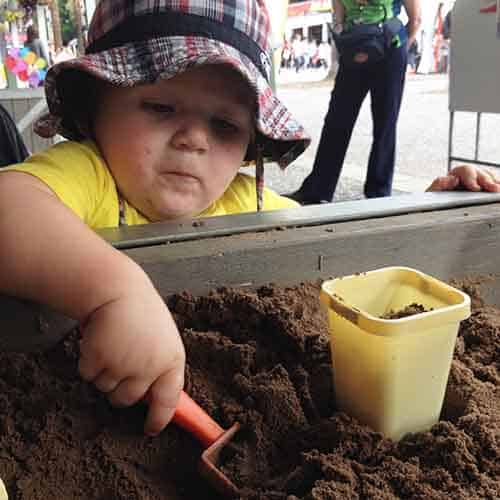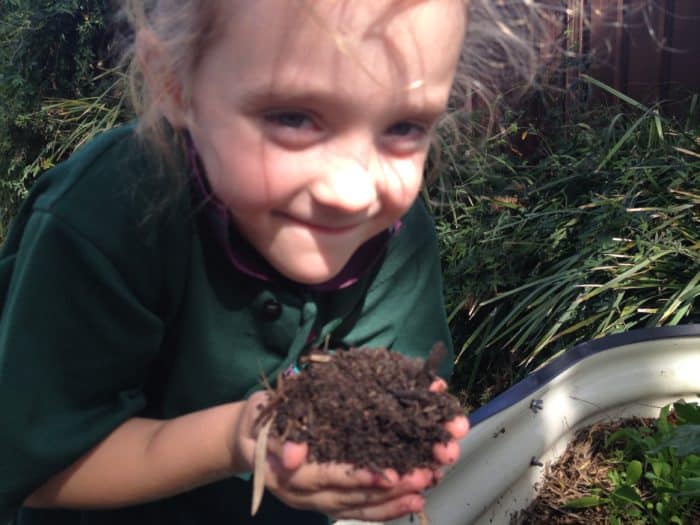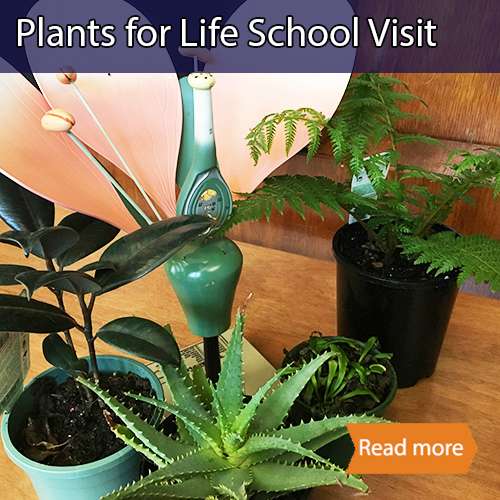Gardening is a great way to get kids outdoors, but it’s not just an opportunity for them to run around and get muddy. By getting your kids involved in the garden you can teach them a number of valuable life skills and some important lessons.
Life skills from gardening
There are several different skills that kids can pick up on by getting involved in the garden, but these are a few of the key ones that you should try to promote.
Responsibility
From sowing seeds to watering plants, and general garden maintenance, kids will get an understanding of responsibility and what happens if they don’t do the tasks that they are supposed to. This is an important skill that will help them to become more accountable for their actions and allow them to take pride in the things they’ve achieved.
Curiosity
There’s so much going on in a garden, from growing plants, bushes, and trees, to wildlife and bugs. Getting kids outside in the garden can encourage them to explore their surroundings and inspire curiosity.
Patience
Gardening takes time and patience while things grow and develop. But waiting for things is often something that younger kids will struggle with. So getting them to plant seeds, care for them, and see them slowly grow will help them to understand the value and importance of patience.
Start off with some fast-growing plants such as sunflowers and lettuces so that they can see them develop from seedlings into plants over a few weeks. Then you can try planting things that take a bit longer to grow — encourage them to document their growth so they can see the changes and different stages.
Lessons kids can learn in the garden
Alongside some useful life skills, there are a lot of practical educational lessons that kids will pick up from getting involved in the garden.
Nutrition
Getting kids involved in the garden can teach them valuable lessons about nutrition and healthy eating. You can talk about the different vitamins and minerals in fruit and vegetables plus what the body needs them for. And they’ll be more excited about trying to eat the things they’ve grown, so it’s a good way to introduce different foods into their diet.
Chemistry
Gardening can provide some practical chemistry lessons that are easy for kids to follow. For example, the structure and condition of the soil can impact how well plants will grow in the soil.
You can get testing kits that will tell you what the soil’s pH, moisture and nutrient levels are. This can indicate problems with the soil that might affect your plants. For example, a common issue is clay soil, which doesn’t drain water away properly, and by trying a clay soil conditioner you’ll be able to change the composition of the soil and improve it.
Creating a compost heap and adding in debris and garden waste is a good way for kids to learn about how things break down and decompose. You can talk about the different chemicals and processes that are involved and which nutrients from compost can help plants to grow. You could even run an activity that looks at why cut apples go brown.
Biology
There are also plenty of ways that kids can learn about biology in the garden. Some simple activities that are easy to set up include:
- Observing different stages of plant growth and explaining why they happen.
- Trying to find and observe different bugs in the garden
- Learning about how plants reproduce
- Experimenting with planting things in different locations to see what factors affect them
- Creating and maintaining a worm farm to feed your garden
- Just what makes a fruit a fruit? What exactly is a vegetable?
- Picking fruit can be an adventure plus an opportunity to learn more about farming techniques
Practical experiments and lessons in the garden are a good way to introduce kids to more complicated science lessons so that they’re easier to understand.
Gardening is a good opportunity for kids to learn a number of important skills and some key science lessons in a practical way. Encouraging children to go outdoors will inspire curiosity and help them engage with nature and learning.
Happy teaching
Laura
“Laura May is Digital Editor at Just Another Magazine. We write about beauty, fashion, lifestyle, relationships, travel, trends and anything else that matters to you. Name throwing you off? Don’t take it too seriously – we intend to stand out from the crowd.”



























Comments